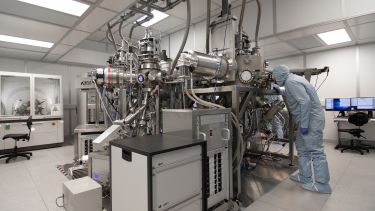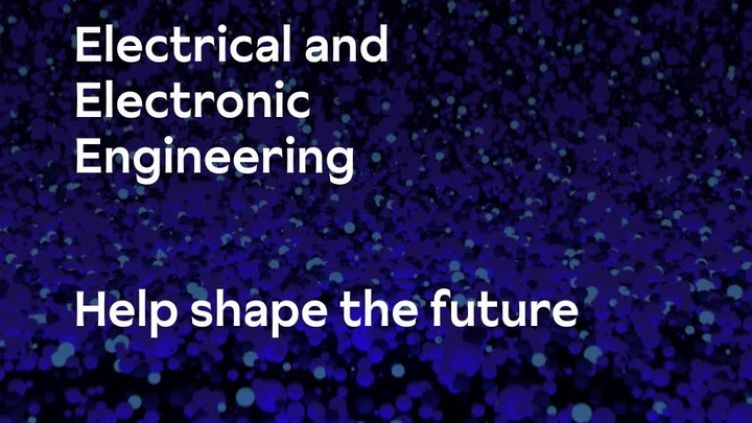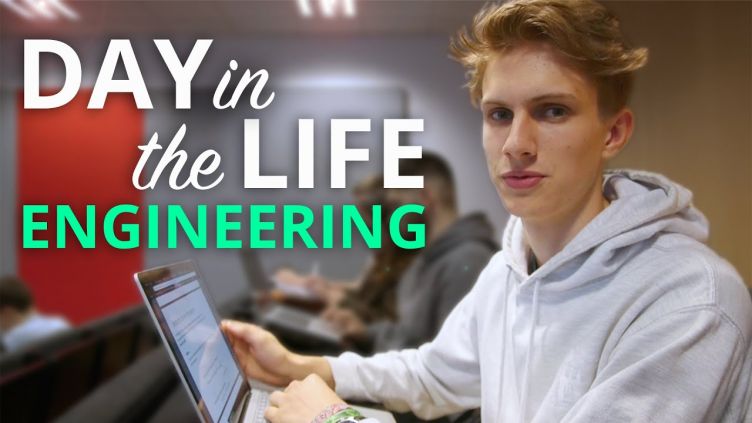Electronics and Computer Engineering BEng
Learn how to design and implement optimised hardware and software for computing, sensing, control and communication systems that power modern life. Refine your skills through a third-year individual project. Apply your skills in careers across AI and computing, autonomous vehicles, IoT and telecommunication systems.
-
A Levels
AAB -
UCAS code
H655 -
Duration
3 years -
Start date
September
- Accredited
- Course fee
- Funding available
- Industry placement
- Study abroad
Explore this course:
Course description
Why study this course?
Electronics and computer engineering lies at the heart of many of the technologies that will shape the future. This programme will enable you to make a positive contribution to many global challenges, including AI, computing, cybersecurity, autonomous vehicles, IoT and communications.
You will learn from academic staff who are involved in world-class research with our industrial partners. Their research informs our teaching.
As well as learning about engineering, you will also do engineering by completing various projects. For your final year project you may be embedded within a research group or use the facilities in our bespoke project labs or the iForge Makerspace.
The Diamond building is dedicated to teaching engineering students practical skills. It contains large, modern labs where you can apply the theoretical material delivered in lectures to real-world applications. It's staffed by a team of technical and academic staff who are dedicated to teaching practical skills. The building also contains over 1,000 individual study spaces.
The specialist and generic skills that you acquire will enable exciting well-paid global career opportunities in industry, commerce, research and beyond.

Learn about the technology that makes modern life possible, with a degree in electronics and computer engineering.
The electronics and computer engineering discipline combines the fields of electronics and computer science. You'll learn how to design and fabricate individual electronic components, the combining of these components into complex circuits that form semiconductor integrated circuits (ICs) and then the assembly of the ICs into complete systems, such as mobile phones or autonomous vehicles.
You'll learn these steps using industry standard software and hardware tools. Your studies will be informed by our research and designed in collaboration with our industry partners, thus giving you a flying start to your career.
You'll learn by a combination of lectures, laboratory classes, tutorials and projects. Much of which will be delivered in our modern engineering teaching building - The Diamond. In particular, you will learn to use the industry-standard equipment in our Electronics and Control Lab, Teaching Cleanroom and Computer Labs.
In year one we will review the basic physics behind electrical/electronic devices and you will learn how to design, build and test simple electronic systems. These classes will be supplemented by a formal introduction to computer programming - a necessary skill for all engineers.
Year two contains in-depth material relating to embedded programming; digital and analog electronic circuit design, data communications, and software engineering. You'll do three projects:
- A week-long faculty-wide engineering challenge
- An industrial project with one of our industrial partners
- A design project in which you will design, build and test either a simple microprocessor or microcontroller system.
Your third year will include higher level modules on digital engineering and electronic circuits, together with a management module. You will also complete a large individual research project, supervised by one of our academic staff.
Our graduates go on to exciting careers within leading design companies, including ARM and Imagination, plus many other engineering companies, including ARUP, BAE Systems, Barclays, Deloitte, Jaguar Land Rover, Nissan, National Grid, National Instruments, Renault, Rolls Royce, Shell, Siemens, Unilever and Volvo.
Accredited by the Institution of Engineering and Technology (IET) on behalf of the Engineering Council for the purposes of fully meeting the academic requirement for registration as an Incorporated Engineer (IEng) and partially meeting the academic requirement for registration as a Chartered Engineer (CEng).
Modules
A selection of modules are available each year - some examples are below. There may be changes before you start your course. From May of the year of entry, formal programme regulations will be available in our Programme Regulations Finder.
Choose a year to see modules for a level of study:
UCAS code: H655
Years: 2022, 2023
Core modules:
- Digital System Engineering
-
This module introduces the basic principles underlying the design of electronic systems. The ideas are discussed mainly in the context of digital design which cannot be undertaken realistically without some level of system thinking and planning. Other areas of system design will be used to illustrate and reinforce the idea that system design ideas apply to many fields beside digital design. The module will also introduce some of the computer based tools used by system designers for simulation and verification.
20 credits - Electrical Circuits and Networks
-
This module introduces the basic principles underlying electric circuits. The idea of a circuit, and the concepts of voltage, current and power are introduced for both alternating and direct sources. The interaction between electrical circuits and magnetic circuits is discussed and the idea of mutual coupling and transformers is introduced. Formal analysis methods such as nodal, loop and superposition are introduced in the context of dc and ac circuits and the complex notation for ac quantities applied to the latter. The calculation of power in a range of contexts is discussed extensively.
20 credits - Electronic Devices and Circuits
-
This module introduces the physical principles that govern the properties and applications of the active and passive circuit components that comprise all electronic and electrical circuits. Issues affecting the practical behaviour of resistors, capacitors and especially diodes and transistors are discussed. The circuit environments in which diodes and transistors are used, and the models describing their internal behaviour and external interactions, are introduced. It is shown how transistors and diodes can be used in both switching circuits and amplifier circuits and the important concept of small signal modelling is introduced in the context of the latter.
20 credits - Mathematics (Electrical and Aerospace)
-
This module aims to reinforce students' previous knowledge and to develop new basic mathematical techniques needed to support the engineering subjects taken at Levels 1 and 2. It also provides a foundation for the Level 2 mathematics courses in the appropriate engineering department. The module is delivered via online lectures, reinforced with weekly interactive problem classes..
20 credits - Algorithms and Data Structures
-
This module introduces the basic building blocks of non-trivial computational processes by providing the knowledge required to select and implement appropriate data structures and algorithms. The understanding of the limits of computation for a given problem is developed using a range of examples. The module will be delivered using a range of lectures and practical sessions to help students develop the module outcomes.
10 credits - General Skills
-
This is a general skills module which encompasses a range of professional development activities that will be useful throughout the remainder of your degree and career. These include practical skills in the laboratory, simulation skills for analysing circuits, communication skills and career development.
10 credits
You will learn to use the full range of industry standard laboratory equipment such as oscilloscopes, waveform generators and soldering workstations. A series of engaging exercises, both in the lab and using advanced simulation tools, are designed to build up your proficiency in practical engineering. You will use measurements to determine the mystery components in hidden boxes, practice soldering and fault-finding on printed circuit boards, and combine programming with circuits using microcontrollers to solve real world challenges. Many activities have short written tasks aligned to them, allowing focused practice at technical communications with rapid feedback from staff.
In the personal tutorials programme, you will work through personal development activities in small groups, such as effective CV writing and communication skills. You will receive regular feedback on your personal development through skills audits aligned to the 91Ö±²„ Graduate Attributes. Some activities will be individual, such as researching your own employability strategy to get your dream engineering job, while others will be in teams, such as giving peer feedback on presentations and an exciting team-based robotics challenge.
The module culminates in an independent construction project that will require all of your skills together - past projects have included creating audio speaker circuits (handling digital input signals right through to audible sound outputs) and infra-red remote controls.
The combination of the two strands to the module will prepare you to work as a professional engineer throughout your degree programme and beyond. - Programming
-
This unit deals with practical programming. Students will study and practise programming in C andMatlab to provide underpinning skills for their development as engineers.
10 credits - System Design Analysis
-
This module gives you a hands-on appreciation of the design, manufacture and operation of electrical and electronic products. Delivery will consist of lectures and laboratory classes.There will be two types of laboratories:Ā (a) DeconstructionĀ (b) ConstructionIn (a) you will be guided through the deconstruction of defunct commonplace electrical products. You will discover how the products are made; how the various sub-components interact and the materials that have been used.In (b) you will build some simple electrical/electronic systems. This may include the use of simple circuit simulation tools and a take-home kit.The lectures will be used to facilitate the labs and will also include discussions of the issues associated with recycling and sustainability.
10 credits - Global Engineering Challenge Week
-
The Faculty-wide Global Engineering Challenge Week is a compulsory part of the first-year programme. The project has been designed to develop student academic, transferable and employability skills as well as widen their horizons as global citizens. Working in multi-disciplinary groups of 5-6, for a full week, all students in the Faculty choose from a number of projects arranged under a range of themes including Water, Waste Management, Energy and Digital with scenarios set in an overseas location facing economic challenge. Some projects are based on the Engineers Without Borders Engineering for people design challenge*.
*The EWB challenge provides students with the opportunity to learn about design, teamwork and communication through real, inspiring, sustainable and cross-cultural development projects identified by EWB with its community-based partner organisations.
Core modules:
- Analogue and Digital Electronics
-
This module brings together the underlying physical principles of BJT, JFET and MOSFET devices to show how structural decisions in device design affect performance as a circuit element. Basic circuit topologies such as long - tailed pairs, Darlington transistors and current mirrors are described as a precursor to exploring the internal design of a typical op-amp. Common applications of op-amps are discussed. The relationship between device structure and performance in simple CMOS circuits is explored and applied to real digital circuit applications. Digital system design strategies are introduced with examples drawn from everyday embedded digital systems.
20 credits - Communication Electronics
-
This module introduces the basic structure of a communication system and examines the various circuits and signal engineering strategies that are necessary to make a system work. The fundamental building blocks of a communications system are introduced and analysed in terms of the critical design metrics. Following on from the system approach, a range of circuit components are introduced and analysed such as filters and oscillators. This approach will provide you with a range of levels of system and component understanding such that you can apply these to designs.
20 credits - Software Engineering
-
This module sets out the process of software engineering and allows students to develop effective and efficient strategies for the realisation of large scale software systems system. Fundamentals of object oriented programming will also be addressed in the context of software engineering to solve a computational problem.
20 credits - Design Project
-
You will undertake an extended design project that will encompass modelling, design, implementation and test. The list of available projects may vary from year-to-year, but will always encompass a range of topics from different aspects of electronic and electrical engineering.
10 credits - Engineering Software Design
-
This module builds on the C programming learned in year 1 by exploring both the higher level issues of programming, modelling, and skills that an Electronic Engineer should possess. Three mini projects using C and MATLAB and drawn from across the department. The aim is to develop in you the habits of object orientation (e.g. modularity, data hiding, etc.) using C and MATLAB, both commonly used industry standard tools, and writing software for embedded systems.
10 credits - HDL-Based Design & Programmable Logic
-
Provide a comprehensive overview of Hardware Description Languages focusing on the modelling, simulation and synthesis of digital logic circuits. Continue through to the extension of HDLs for system design and verification of System on Chip (SOC) designs. Provide an overview of target technologies, in particular programmable logic and FPGA. Emphasis will be on Verilog as commercial processor cores (ARM, MIPS) are only available in Verilog. Comparisons with VHDL will be made at all stages.
10 credits - Industrial Project
-
This module combines a lecture series and an industrially inspired group project task under the SHIPS banner, SHIPS standing for SHeffield Industrial Projects Scheme. The group industrial project aims to allow you to develop skills in such areas as engineering problem solving, effective communication (both oral and written) and group project management; all by tackling a complex technical problem with difficult realistic constraints within a restricted timescale.
10 credits - Managing Engineering Projects and Teams
-
This module provides you with an understanding of the significance of projects as an instrument of business success in engineering organisations. You will learn a range of project management tools, techniques and methodologies throughout the project life cycle. You will develop skills in defining, planning, delivering, and controlling engineering projects. You will also learn the roles and responsibilities of people within engineering projects and understand how to manage teams in engineering projects.
10 credits - Mathematics II (Electrical)
-
This module is part of a series of Level Two modules designed for the particular group of engineers shown in brackets in the module title. Each module consolidates previous mathematical knowledge and develops new mathematical techniques relevant to the particular engineering discipline.
10 credits - Engineering - You're Hired
-
The Faculty-wide Engineering - You're Hired Week is a compulsory part of the second year programme, and the week has been designed to develop student academic, transferable and employability skills. Working in multi-disciplinary groups of about six, students will work in interdisciplinary teams on a real world problem over an intensive week-long project. The projects are based on problems provided by industrial partners, and students will come up with ideas to solve them and proposals for a project to develop these ideas further.
Core modules:
- Individual Design Project
-
To provide a structured individual design project to enable the student to carry out practical and/or theoretical work which underpins his/her academic studies and allows for the acquisition and demonstration of a wide range of practical skills applied to engineering designs.
40 credits - Digital Engineering
-
This module provides an introduction to digital processor organisation, architecture, instruction set architectures and system organisation/design. It also provides elements on the underlying computer arithmetic and approaches to design (including Verilog Hardware Description Language). The module is underpinned by practical examples. The module then considers an important application area, looking at the fundamental concepts, underlying mathematics, design methodologies and techniques.
20 credits - Electronics and Devices
-
This module aims to describe the generic circuit elements, analogue and digital and their associated properties which are typically used within IC circuits. Additionally, this module aims to bring you a level of understanding of VLSI design, such that you can design basic circuits.
20 credits
Having considered integrated electronics at a circuit level, this module will then look at the fundamental properties of semiconductor materials and devices. It will introduce properties of semiconductor materials such as Si, GaAs and GaN. The semiconductor material properties will be used to design a range of devices including solar cell, photodetector, LEDs, Lasers and microwave devices. Heterojunctions and nanostructures (such as quantum wells) will be introduced to improve semiconductor device performance. The module also aims to provide the knowledge to exploit semiconductor properties, material selection and approaches in device designs. - Feedback Systems Design
-
The module provides an introduction to the modelling, analysis and design of feedback control systems using classical control theory. The focus is linear time-invariant (LTI) systems in the continuous-time domain, although a brief introduction is also provided to digital controllers.
10 credits - Accounting and Law for Engineers
-
The module is designed to introduce engineering students to key areas of accounting and legal risk that engineers should be aware of in their working environment. The module will draw directly on practical issues of budgeting, assessing financial risks and making financial decisions in the context of engineering projects and/or product development. At the same time, the module will develop students' understanding of the legal aspects of entering into contracts for the development and delivery of engineering projects and products, and enhance their awareness of environmental regulation, liability for negligence, intellectual property rights and the importance of data protection. Through a series of parallel running lectures in the two disciplines, the module will provide a working knowledge of the two areas and how they impinge on engineering practice.
10 credits - Mathematics III (Electrical)
-
This module consolidates previous mathematical knowledge and develops new mathematical techniques relevant to electrical engineering at levels 3 and 4.
10 credits - Principles of Communications
-
This course considers the theory and techniques used by a wide range of communication systems, particularly the more recent digital and cryptographic systems. The aim is for students to develop a good grasp of the structure of a modern communication system and to understand the basic issues at each stage in the system.
10 credits
The content of our courses is reviewed annually to make sure it's up-to-date and relevant. Individual modules are occasionally updated or withdrawn. This is in response to discoveries through our world-leading research; funding changes; professional accreditation requirements; student or employer feedback; outcomes of reviews; and variations in staff or student numbers. In the event of any change we will inform students and take reasonable steps to minimise disruption.
Learning and assessment
Learning
Learning will be delivered through a combination of lectures, practical labs and tutorials as well as independent study that is supported by problem classes.
In your first and second year all your labs will be held in The Diamond, where you will use our large Electronics and Control Lab, Electrical Machines Room and have lab sessions in the dedicated teaching Cleanroom.
Our teaching is informed by our research. This results in learning by a combination of theory and hands-on, practical lab sessions in our state-of-the-art-facilities with our fully accredited courses.
Assessment
You will be assessed using a mixture of exams/tests, coursework and practical sessions.
Programme specification
This tells you the aims and learning outcomes of this course and how these will be achieved and assessed.
Entry requirements
With Access 91Ö±²„, you could qualify for additional consideration or an alternative offer - find out if you're eligible.
The A Level entry requirements for this course are:
AAB
including Maths and a science
- A Levels + a fourth Level 3 qualification
- ABB including Maths and a science + B in a relevant EPQ; ABB including Maths and a science + B in AS or A Level Further Maths
- International Baccalaureate
- 34 with 6, 5 in Higher Level Maths and a science
- BTEC Extended Diploma
- DDD in Engineering + B in A Level Maths
- BTEC Diploma
- DD in Engineering + A in A Level Maths
- T Level
- Distinction in a relevant T Level, including grade A in the core component + B in A Level Maths
- Scottish Highers + 2 Advanced Highers
- AABBB + AB in Maths and a science
- Welsh Baccalaureate + 2 A Levels
- B + AA in Maths and a science
- Access to HE Diploma
- Award of Access to HE Diploma in a relevant subject, with 45 credits at Level 3, including 36 at Distinction (to include Maths and Physics units), and 9 at Merit + Grade B in A Level Maths (or equivalent)
-
Relevant T Level subjects include: Maintenance, Installation & Repair for Engineering & Manufacturing; Building Services Engineering for Construction; or Design & Development for Engineering & Manufacturing
-
Science subjects include Biology, Chemistry, Computer Science, Electronics, Physics or Further Mathematics
The A Level entry requirements for this course are:
ABB
including Maths and a science
- A Levels + a fourth Level 3 qualification
- ABB including Maths and a science + B in a relevant EPQ; ABB including Maths and a science + B in AS or A Level Further Maths
- International Baccalaureate
- 33 with 5 in Higher Level Maths and a science
- BTEC Extended Diploma
- DDM in Engineering + B in A Level Maths
- BTEC Diploma
- DD in Engineering + B in A Level Maths
- T Level
- Distinction in a relevant T Level, including grade A in the core component + B in A Level Maths
- Scottish Highers + 2 Advanced Highers
- ABBBB + AB in Maths and a science
- Welsh Baccalaureate + 2 A Levels
- B + AB in Maths and a science
- Access to HE Diploma
- Award of Access to HE Diploma in a relevant subject, with 45 credits at Level 3, including 30 at Distinction (to include Maths and Physics units), and 15 at Merit + Grade B in A Level Maths (or equivalent)
-
Relevant T Level subjects include: Maintenance, Installation & Repair for Engineering & Manufacturing; Building Services Engineering for Construction; or Design & Development for Engineering & Manufacturing
-
Science subjects include Biology, Chemistry, Computer Science, Electronics, Physics or Further Mathematics
You must demonstrate that your English is good enough for you to successfully complete your course. For this course we require: GCSE English Language at grade 4/C; IELTS grade of 6.5 with a minimum of 6.0 in each component; or an alternative acceptable English language qualification
Equivalent English language qualifications
Visa and immigration requirements
Other qualifications | UK and EU/international
If you have any questions about entry requirements, please contact the school/department.
Graduate careers
School of Electrical and Electronic Engineering
Typical graduate job titles include cybersecurity consultant, design engineer, energy engineering consultant, system engineer, electrical engineer, technology analyst, nuclear controls engineer, software engineer and electronics field engineer.
Employers of graduates include ARM, ARUP, BAE Systems, Barclays, Deloitte, Jaguar Land Rover, Nissan, National Grid, National Instruments, Renault, Rolls Royce, Shell, Siemens, Unilever and Volvo.
School of Electrical and Electronic Engineering
The Guardian University Guide 2025
National Student Survey (NSS) 2024

We have been at the forefront of research and teaching within the field of electronic and electrical engineering for over a century. In that time, the use of electronics has become mainstream, requiring challenges to be overcome to provide solutions for everyday needs.
Our students learn from academic experts who have strong links with partners in industry. Our state-of-the-art laboratories allow you to get hands on with equipment used in industry as preparation for your career.
Our MEng and BEng undergraduate courses provide you with a robust understanding of the principles of electronic and electrical engineering. We offer a common start to all our degrees, which offers you the flexibility to change courses at the end of your first year if you wish to focus on certain areas of interest.
All our students take part in the faculty's Global Engineering Challenge and Engineering - You're Hired, working with students from other engineering disciplines to solve a real-world problem.
In your final year, you will work on your own research project supervised by an academic.
University rankings
Number one in the Russell Group
National Student Survey 2024 (based on aggregate responses)
92 per cent of our research is rated as world-leading or internationally excellent
Research Excellence Framework 2021
University of the Year and best for Student Life
Whatuni Student Choice Awards 2024
Number one Students' Union in the UK
Whatuni Student Choice Awards 2024, 2023, 2022, 2020, 2019, 2018, 2017
Number one for Students' Union
StudentCrowd 2024 University Awards
A top 20 university targeted by employers
The Graduate Market in 2024, High Fliers report
A top-100 university: 12th in the UK and 98th in the world
Times Higher Education World University Rankings 2025
Student profiles
Fees and funding
Fees
Additional costs
The annual fee for your course includes a number of items in addition to your tuition. If an item or activity is classed as a compulsory element for your course, it will normally be included in your tuition fee. There are also other costs which you may need to consider.
Funding your study
Depending on your circumstances, you may qualify for a bursary, scholarship or loan to help fund your study and enhance your learning experience.
Use our Student Funding Calculator to work out what youāre eligible for.
Study abroad
Spending time abroad during your degree is a great way to explore different cultures, gain a new perspective and experience a life-changing opportunity that you will never forget.
You can apply to extend this course with a year abroad, usually between the second and third year. We have over 250 University partners worldwide. Popular destinations include Europe, the USA, Canada, Australia, Singapore and Hong Kong.
Find out more on the Global Opportunities website.
Visit
University open days
We host five open days each year, usually in June, July, September, October and November. You can talk to staff and students, tour the campus and see inside the accommodation.
Subject tasters
If youāre considering your post-16 options, our interactive subject tasters are for you. There are a wide range of subjects to choose from and you can attend sessions online or on campus.
Offer holder days
If you've received an offer to study with us, we'll invite you to one of our offer holder days, which take place between February and April. These open days have a strong department focus and give you the chance to really explore student life here, even if you've visited us before.
Campus tours
Our weekly guided tours show you what 91Ö±²„ has to offer - both on campus and beyond. You can extend your visit with tours of our city, accommodation or sport facilities.
Apply
The awarding body for this course is the University of 91Ö±²„.
Recognition of professional qualifications: from 1 January 2021, in order to have any UK professional qualifications recognised for work in an EU country across a number of regulated and other professions you need to apply to the host country for recognition. Read and the .
Any supervisors and research areas listed are indicative and may change before the start of the course.




